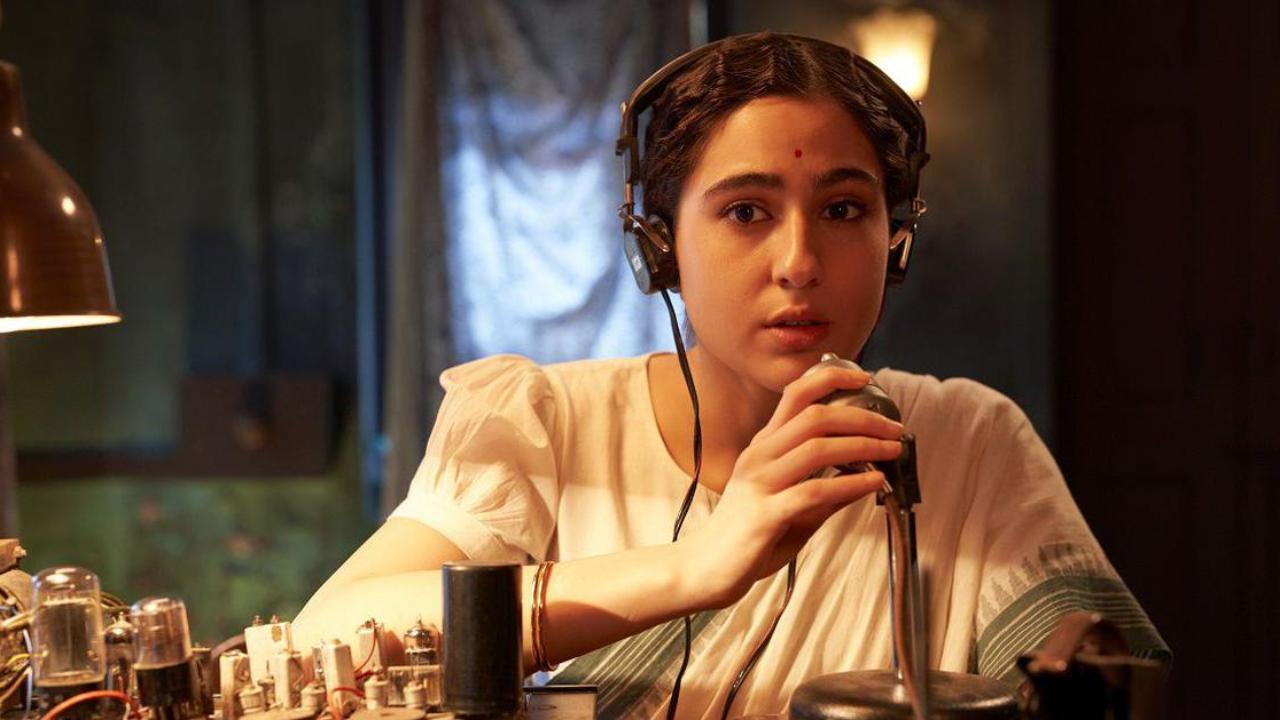Home / Entertainment / Bollywood News / Article /
'Ae Watan Mere Watan' movie review: Patiently paced positive patriotism
Updated On: 22 March, 2024 10:15 PM IST | Mumbai | Mayank Shekhar
'Ae Watan Mere Watan' movie review: Well, if you suffer from a terrible habit of imagining an ongoing movie in other ways—this could well be a strikingly pacy thriller alone
Listen to this article :

Sara Ali Khan in a still from Ae Watan Mere Watan
Film: Ae Watan Mere Watan
On: Amazon Prime Video
Director: Kannan Iyer
Actors: Sara Ali Khan, Emraan Hashmi
Rating: 3/5
“IF not the British, then who,” asks the big barrister, later judge (Sachin Khedekar), in this movie, that is set during India’s freedom struggle!
What kinda person would pose such a ridiculous sounding dilemma, while reeling under a cancer called a colonial rule anyway?



